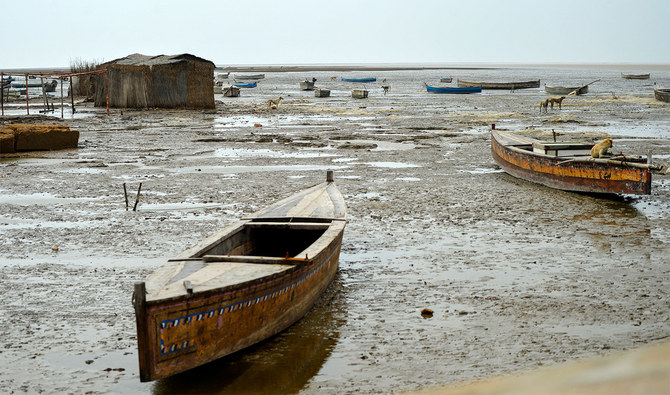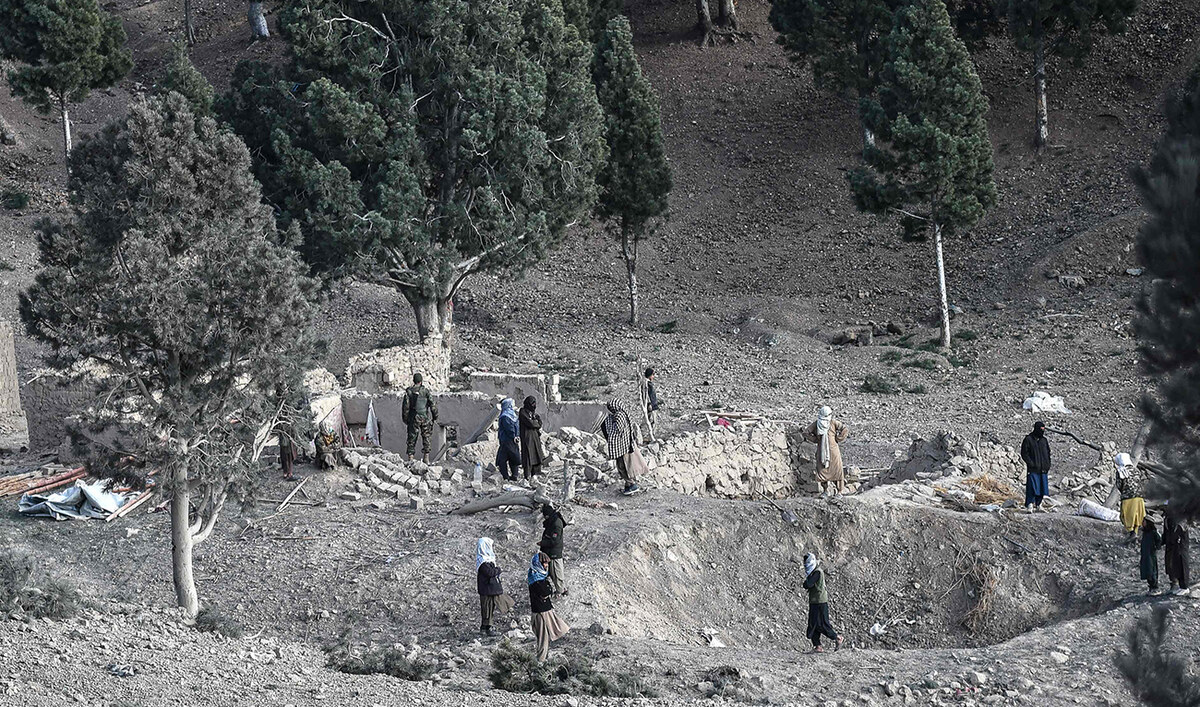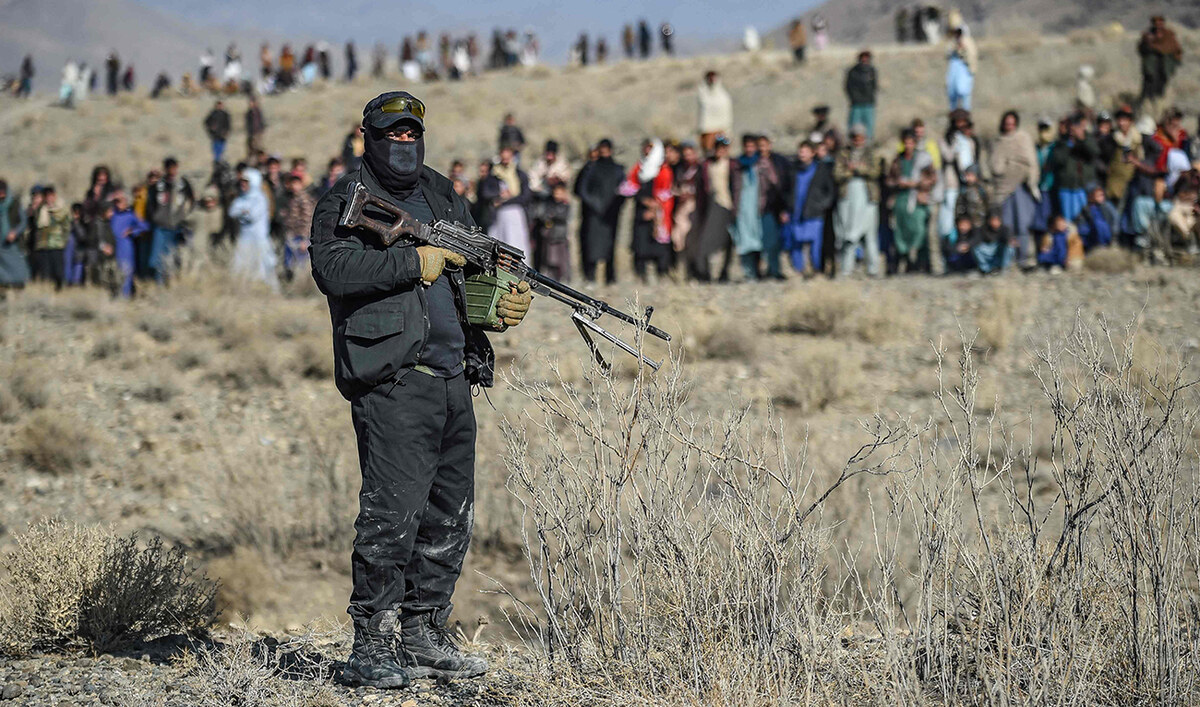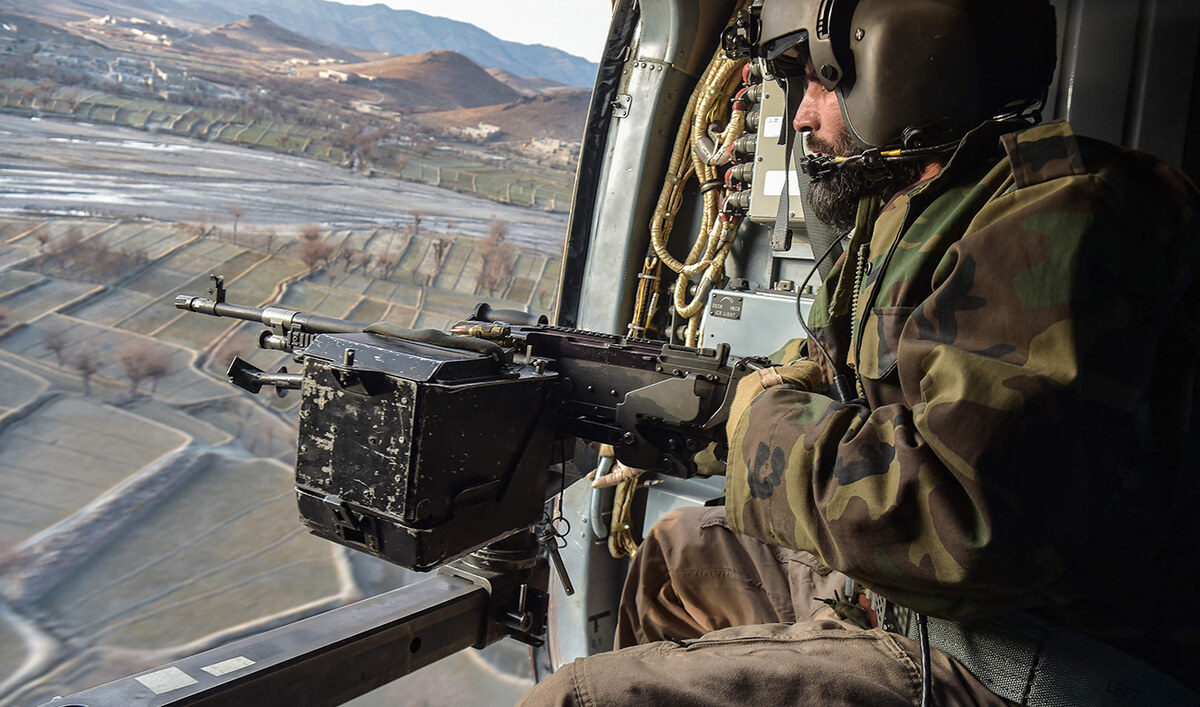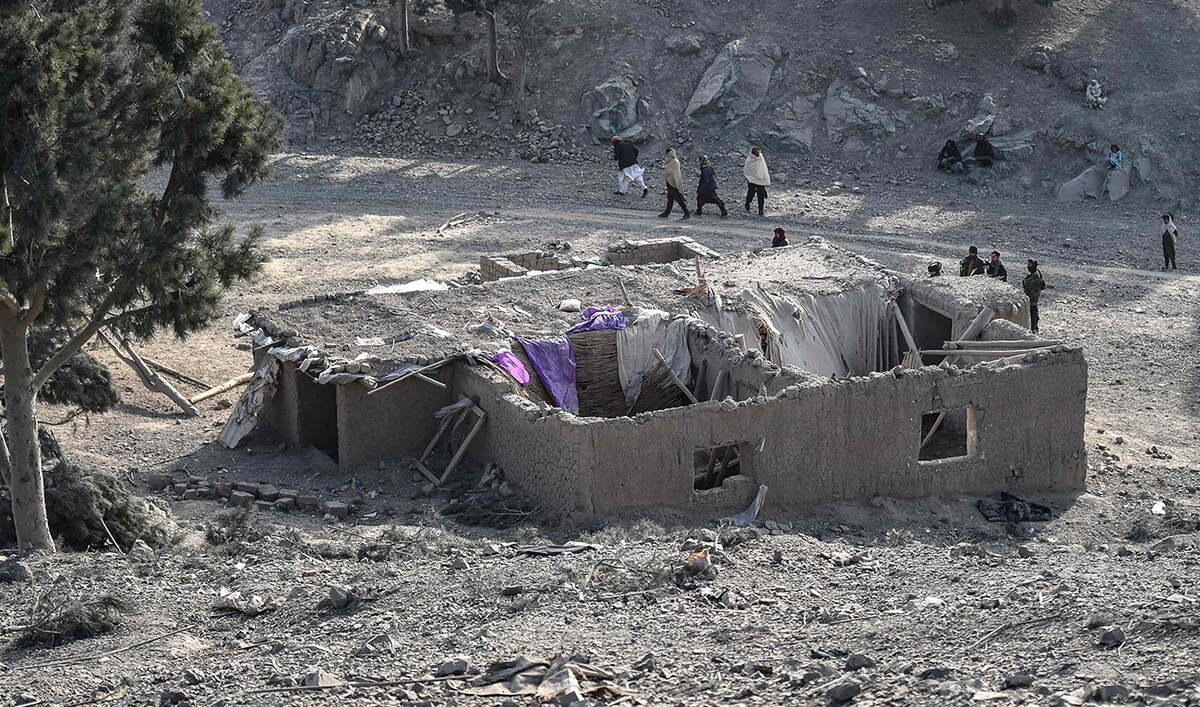MANDVI, India: A vast swath of western India and neighboring southern Pakistan that suffered deadly floods last year are bracing for a new deluge as fast-approaching Cyclone Biparjoy whirls toward landfall Thursday.
Rain was falling and skies were darkening in western India and southern Pakistan along the Arabian Sea, where dusty storms were hampering the evacuation and rescue work. Authorities expect conditions to worsen for two or three days after the cyclone makes landfall, imminently, at India’s Gujarat.
“The landfall process will commence at 6 p.m. local time and continue till midnight,” Mrutyunjay Mohapatra, chief of the India Meteorological Department told The Associated Press. In Pakistan, officials say the cyclone will hit in the south Thursday evening.
Officials from the two South Asian countries stood on high alert as the cyclone approached. It’s expected to make landfall near Jakhau port in India’s Kutch district and inundate the area. In Pakistan, Keti Bandar in the country’s flood-ravaged southern Sindh province, also lies in Biparjoy’s path.
The bazaars and beaches in Mandvi, India, usually a bustling coastal town known for its wooden boat-makers, were deserted Thursday under shutdown orders from the government. Heavy winds and rains uprooted some trees in the area. Local media reported that a pregnant woman was brought from Shiyalbet island in the Amreli district to shore and admitted to a hospital.
Amid dust storms and rain, visibly shocked displaced families were seen at relief camps in southern Pakistan. Among them was 82-year-old Bachai Bibi, who was evacuated from the Badin district in Sindh province. She said she has become homeless due to the cyclone.
Mohammad Ashraf, 35, said local officials helped him, his wife and three children escape from the Pakistani village of Sheikh in the storm zone to the relief center.
The World Health Organization says it is supporting Pakistan’s efforts to prepare and respond to the public health impact of the cyclone, which was expected to hit parts of southern Pakistan Thursday.
Pakistan and local aid groups are delivering free food and clean drinking water to displaced people.
Thousands of people in India were evacuated, bringing the total number of people shifted to relief camps to 75,000. In Pakistan, National Disaster Management Authority chief, Lt. Gen. Inam Haider Malik, said 73,000 people have been evacuated to safer places so far, and authorities are providing them shelter and food.
The disaster management agency said Thursday that the cyclone was packing sustained winds of up to 120 kph (about 75 mph) and was projected to hit Pakistan’s Sindh province, the site of one of historic deadly floods last summer. At least 1,739 people were killed and 33 million were displaced in 2022 when climate-induced floods swept the country, causing $30 billion in damage.
Thursday morning, authorities said that the storm had lost some of its intensity and was expected to have a maximum sustained wind speed of between 115 kph and 125 kph (71 mph to 78 mph), gusting up to 140 kph (87 mph), a slight decrease in predictions a day earlier.
The Indian Meteorological Department said the cyclone was bearing down on Jakhau port, where it is likely to make landfall on Thursday evening.
Like southern Pakistan, large parts of coastal Gujarat have also been experiencing heavy rainfall and strong winds. Indian authorities warned that the cyclone, classified as a “very severe cyclonic storm,” has the potential to inflict heavy damage once it makes landfall.
A storm surge of two-to-three meters (two-to-three yards) above the astronomical tide is likely to inundate low-lying areas in the storm’s path. The tides could rise as high as six meters (more than six yards) in some places, the IMD has said.
“Elaborate arrangements have been made by us for post-cyclone work like restoration of electricity infrastructure, mobile networks and other infrastructure,” Gujarat Health Minister Rushikesh Patel told the Press Trust of India news agency.
ADVERTISEMENT
A government release said major religious sites in coastal Gujarat such as the Dwarkadhish temple in Devbhoomi Dwarka and Somnath temple in Gir Somnath district will remain closed on Thursday.
A statement from the Indian railways said 76 trains have been canceled on account of the cyclone.
Realizing that mobile networks are among the first to be affected once a cyclone makes landfall, the Gujarat State Disaster Management Authority has engaged six ham radio teams across the coastal districts.
“Ham radios don’t require any mobile towers, electricity or Internet to make calls and we can communicate emergency requirements using the radios. They are really useful during disaster such as this,” Kausal Jani, a ham radio operator told PTI news agency. During 2021’s Cyclone Tauktae, ham radios proved invaluable as large sections of coastal Gujarat was without electricity for six days.
On Thursday, Pakistani Prime Minister Shahbaz Sharif was in Azerbaijan on an official visit.
In a tweet the previous day, Sharif said the government had taken all possible measures to ensure the safety of those at risk in the country’s southern Sindh province.
“Preparations have been made to handle any kind of emergency as a result of rains and strong winds in Karachi, while the evacuation of fishermen from the sea and the population on the coastal areas is going on rapidly,” he said.
Pakistani Climate Minister Sherry Rehman advised against panic and said Karachi, the country’s largest city with 20 million people, was safe as the cyclone will not make landfall there, as was feared earlier.
A reporter for The Associated Press saw people moving to safer places in vehicles, indicating they initially ignored government warnings.
Pakistan so far has not issued any appeal for assistance from the United Nations, which said the previous day it was monitoring the situation. Local charities and aid agencies on both sides were helping the displaced people.
Experts say climate change is leading to an increase in cyclones in the Arabian Sea region, making preparations for natural disasters all the more urgent. Pakistan is among the top 10 countries most affected by climate change, although the country’s contribution to global greenhouse gas emissions is less than 1 percent.
A 2021 study found that the frequency, duration and intensity of cyclones in the Arabian Sea had increased significantly between 1982 and 2019.
In 1998, a cyclone that hit Gujarat state claimed more than 1,000 lives and caused excessive damage. A cyclone that hit Sindh province and the city of Karachi in 1965 killed more than 10,000 people.


